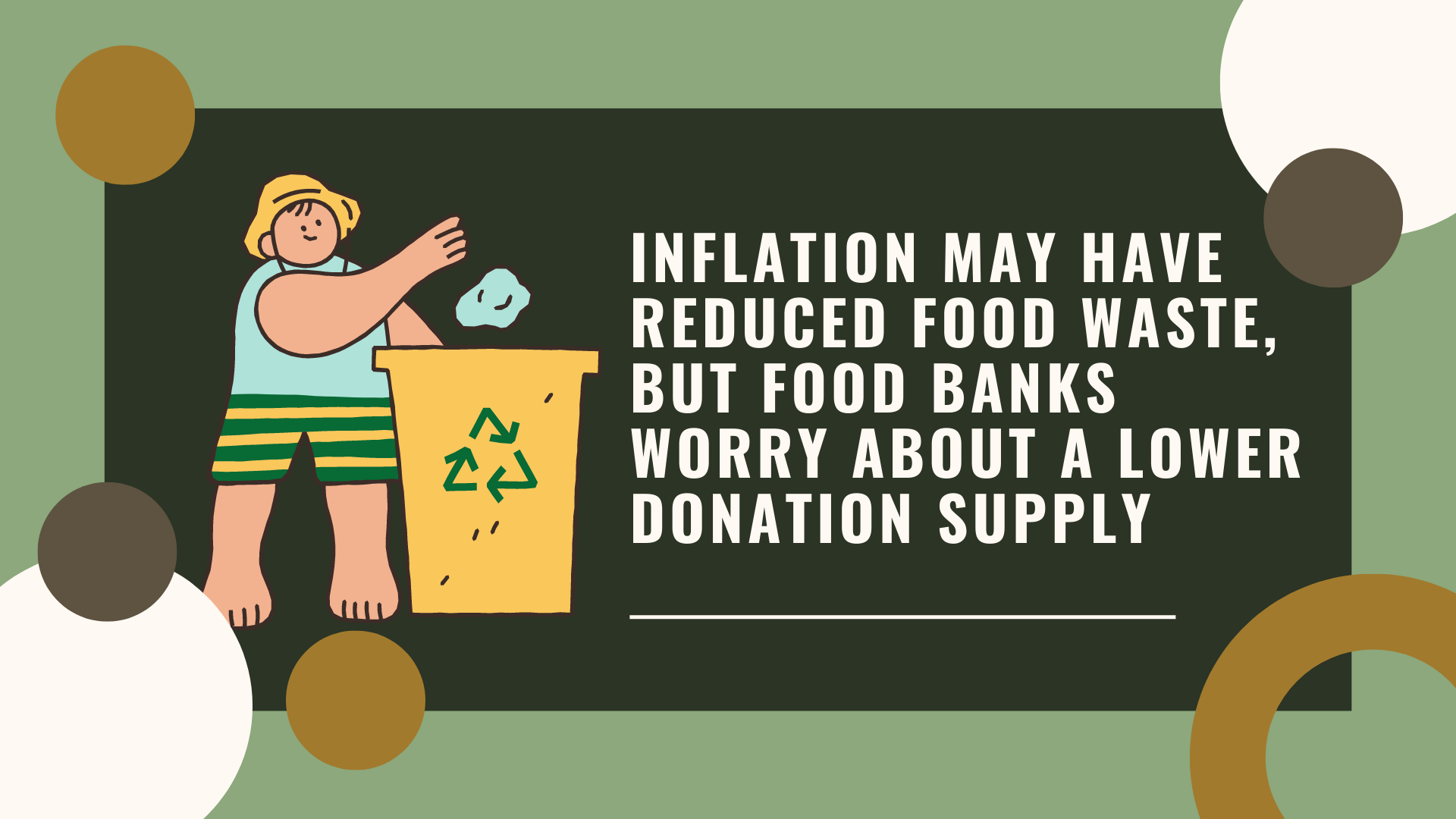Dive Brief:
- Recent inflation, along with lingering economic and supply chain effects from COVID-19, have put stress on U.S. food systems. That can mean more expensive food and less variety — but it also means less food waste, according to speakers at a webinar hosted by food waste nonprofit ReFED on Aug. 26.
- Experts highlighted how inflation has squeezed food banks, raised grocery bills and caused restaurants to struggle, but has also led to more creative efforts to keep food out of the trash or compost bin, such as through leveraging local food partnerships or management software.
- However, recent research suggests the biggest motivator preventing food waste during inflationary periods is simply the drive to save money, said Brenna Ellison, an associate professor in Purdue University’s Department of Agricultural Economics. “Even though a lot of people talk about the environmental effects, realistically the wallet is what changes food waste behavior.”
Dive Insight:
Speakers were optimistic that nationwide efforts to improve organics recycling infrastructure have made headway in recent years, but the current economic climate means food producers and restaurants need to work even harder “to support rescue of food as a step before composting, and ultimately to avoid landfill,” said Erika Thiem, chief supply chain officer at Feeding America.
Overall U.S. grocery prices have increased about 12% since this time last year, and the cost to eat a meal at a restaurant has increased between 7% and 8%, Ellison added. Though data on how consumers have managed food waste during this recent period of inflation is not yet available, “historically, higher food prices are associated with less household waste because households want to better manage resources that cost more,” she said.
Food banks are feeling the pressure from inflation just as families have, Thiem said. More people are seeking support from food banks as other programs that sustained families through the beginning of the COVID-19 pandemic, like the expanded child tax credit and local programs that provided free or reduced price groceries, have sunsetted. However, those food banks rely on food producers and grocery stores that are facing their own inflation and supply chain issues and therefore have less to donate, she said.
Feeding America is working to build stronger partnerships directly with food producers to redistribute items like dairy and produce that otherwise do not end up in stores, she said.
Meanwhile, there has been a recent rise in more outlet-type grocery stores, which Thiem said is a good opportunity to sell lower-priced food that is nearing its expiration dates. More work is going into how such food outlets are branded to eliminate the stigma and make stores feel more inviting and “less like a bakery thrift store,” she said.
Feeding America also sources prepared foods from restaurants, which must be distributed more quickly than foods found on grocery shelves, sometimes causing logistical hurdles. However, Thiem said stronger partnerships with restaurants will be a key strategy for reducing restaurant food waste while also bringing in more supplies for families facing food insecurity.
Konstantin Zvereff, CEO of food industry e-commerce platform BlueCart, said restaurants have always dealt with food waste, but lingering supply chain issues and trouble hiring workers has increased restaurant operating costs even further this year. BlueCart’s restaurant clients have had to pass some of that cost to customers.
Restaurants with fixed menus are having the hardest time right now because they must pay higher prices for ingredients customers expect in their mainstay offerings. When customers visit restaurants less frequently to save money, said Zvereff, those ingredients get wasted.
However, restaurants that have rotating or changing menus have been much more successful because they can pay less for in-season or widely available ingredients and give restaurant-goers a sense of novelty at lower prices, he said.
One of BlueCart’s products is an inventory management software, which Zvereff said could help restaurants identify supply chain workarounds and shift ordering schedules for just-in-time inventory to prevent future waste. “Technology is a major way to identify emerging issues,” he said.
Source: Waste Dive

